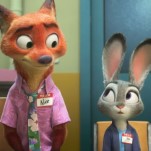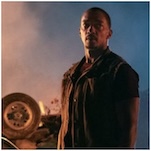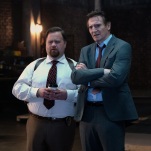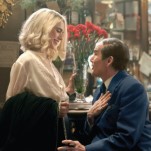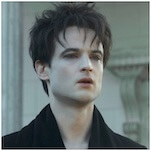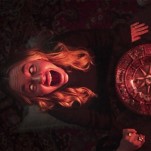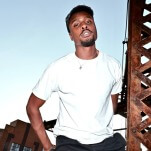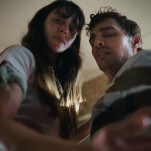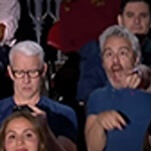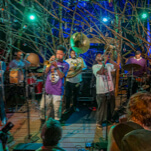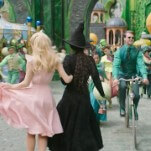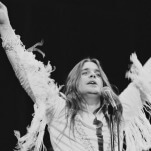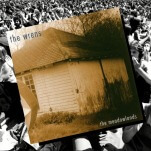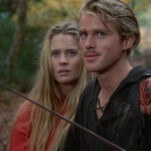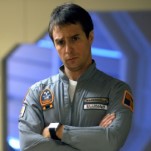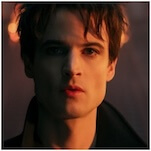Blue Jay
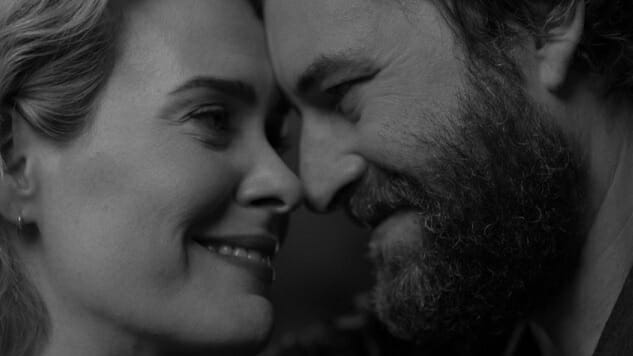
Sarah Paulson is one of the most vital actors working today, and at this particular moment she’s damn close to ubiquitous: She’s fresh off an Emmy win for her portrayal of Marcia Clark in The People v. O.J. Simpson: American Crime Story, she’s currently doing work in Roanoke, the latest season of Ryan Murphy’s American Horror Story franchise, and this week she shows up as one of two leads in newcomer Alex Lehmann’s lovely romantic comedy Blue Jay, a compact and unassuming film about big, life-changing things that’s presented in a beautiful monochrome package. Think of it as a palate cleanser for Paulson after a year spent maneuvering productions of grander scope and ambition.
But scale and quality exist in two separate zip codes, and what Blue Jay lacks in import it makes up for with effervescence and melancholy. As though to put Paulson’s luminous talents to the test, Lehmann has cast her alongside Mark Duplass, a man primarily known for making tons of low-fi mutter-fests and whose range allows him comfortably to play himself. When Duplass is what you want, the limitations of his persona aren’t an obstacle. (For proof, see The Mindy Project, or better yet, Creep, which both make perfect use of his Duplassity in ways that no project he’s engaged himself in before or since has managed to.) In Blue Jay, Duplass’ tonal qualities suit his character handsomely, but then again, maybe he simply looks better when he’s basking in Paulson’s light. Anyone would.
Duplass plays Jim. Paulson plays Amanda. They’re erstwhile high school sweethearts, returned to their hometown at exactly the same time for exactly different reasons. It’s the film’s first and only contrivance, and it’s the sort of contrivance that isn’t actually affected. You’ve had that experience before, that unexpected and thoroughly awkward reunion with an old flame or an old friend from another period of your life. If the film belabors anything, it’s the “awkward” component, but then again, if you cast Duplass as one half of your story’s love connection, “awkward” is just part of the package. “How are you? Did I ask that already?” Jim stammers at Amanda, who, possessed of all the dignity in the world, replies, “You did, but I’m happy to tell you again.”
There’s nothing special or flashy about the line, and yet Paulson sells it with a tender, playful grace that cuts through to our hearts. You don’t know Jim from Adam or Amanda from Eve, but their adulthood meet-cute encourages us to invest instantly in whatever relationship they had, or still have, or will forge afresh in this late-stage encounter. Blue Jay takes off from there, a plotless love story in the vein of Richard Linklater’s Before trilogy. It’s talky. It’s lyrical. It’s utterly charming. It’s free of action and bereft of conflict, at least until its last 10 minutes, when its cavalcade of adorable flirtation comes to an abrupt halt upon the introduction of old wounds, wrapped in the hyper-delicate emotional scar tissue that forms with the passage of time.
-

-

-

-

-

-

-

-

-

-

-

-

-

-

-

-

-

-

-

-

-

-

-

-

-

-

-

-

-

-

-

-

-

-

-

-

-

-

-

-

